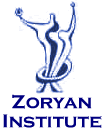
 The Institute proposes the creation of an international Turkish Studies Centre in
The Institute proposes the creation of an international Turkish Studies Centre in
?
On the occasion of the 15th anniversary of the
The Zoryan Institute was invited to address the Plenary Session of the conference. During the conference, there were five themes concentrated on: Rural Poverty Eradication Program; Nation, State and Identity in the 21st Century; The Mechanics of Diaspora-Homeland Relations: A Two-Way Street; Repatriation and
The full transcript of Zoryan?s President, K. M. Greg Sarkissian, is reproduced below.
Shared Knowledge of History as a Catalyst for Dialogue
Mr. President, Vehapar Hayrer, and distinguished guests.
While we are gathered here to discuss issues related to the Rural Poverty Eradication Program, particularly in border villages, we have to think also about relations with neighbors on the other side of the border.
Today, many Turks and Armenians continue to see each other only as an unchanging and monolithic enemy, as opposed to their current reality. Genocide recognition continues to be one of the major stumbling blocks in Armenian-Turkish relations, which, we believe, should be established without any preconditions and with a view towards our future, in relation to the other side of the border.
Since the Justice and Development Party came to power in
Through this initiative, the new government opened the door to free speech on long held taboos, such as linguistic and cultural rights for the Kurds, the rights of non-Turks and non-Muslims, and the need for Turkish society to deal with and debate its suppressed history, including, as an unwanted by-product, the Armenian Genocide.
These had long been perceived as a threat to the military-bureaucratic elite that constitutes the “
This has also caused significant tension among the various elements of the Turkish state, government and civil society. I am sure everyone here is familiar with the indictments of writers Orhan Pamuk and Elif Shafak, journalist Hrant Dink, and scholar Murat Belge, to name just a few, on the charge of “insulting Turkishness.” In May 2005, Justice Minister Cemil ?i?ek accused the organizers of the Istanbul Conference on Ottoman Armenians of stabbing the Turkish nation in the back and called them traitors, while the Foreign Minister, Abdullah G?l, announced that he had no problem with the expression of critical opinion and even would be willing to participate in the conference. For their part, the conference organizers declared that “It is high time
Some feel that trying to force
It is clear that there is a fervent debate in
There is a clear need and strong desire within
We at the Zoryan Institute see a unique opportunity at this particular juncture, to help provide information for this debate within
Zoryan, in collaboration with university research centres, such as the Center for Holocaust and Genocide Studies at the
The objective is to provide knowledge that will be shared by Turkish and Armenian civil societies and western scholarship. The project aims to identify, collect, analyze, transliterate, translate, edit and publish, authoritative, universally recognized original archival documents on the history of the events surrounding 1915, in both Turkish and English. This material must be distributed widely in
The work is difficult, requiring advanced knowledge of the Gothic German and Ottoman-Arabic scripts, the special diplomatic languages used, and the history and politics of the period. This long-term project will take many years to complete and will require enormous human and financial resources. Despite the difficulty, this work must be done, as denial and distortion of history are a major stumbling block to dialogue, and therefore peace, security and progress in the region. Without dealing with this history, prejudice and hatred will be perpetuated and will have unforeseen consequences for generations to come.
The more such documents are made available to Turkish society, the more it will be empowered with knowledge to question narratives imposed by the state. Restoring accurate historical memory will benefit not only Turkish, but also Armenian society. Both will be emancipated from the straightjacket of the past. Such a Common Body of Knowledge will lead to an understanding of each other, act as a catalyst for dialogue, and serve as a precursor to the normalization of relations between the two societies.
This work can only be achieved through the systematic and continued efforts of dedicated professionals, with staff and independent scholars and appropriate financial resources. This is such a large undertaking, in terms not only of resources, but also impact, that it must be supported by all Armenians, including the Armenian Government.
Towards this end, we propose that the Diaspora support the Zoryan Institute in the creation of an international Turkish Studies Centre in
History is a stumbling block for peace and stability in the region. True peace can be achieved only if the nations in the region can talk to each other openly about their past. Therefore, we see education through the Common Body of Knowledge as one of the best ways to alleviate the tension between Turks and Armenians, because it provides a basis of shared knowledge that can counter generations of hostility and lead to mutual understanding and dialogue. In the meantime, we should continue our efforts to normalize relations with
Thank you
Source: ZORYAN INSTITUTE OF CANADA, INC.
Tel: 416-250-9807?
Fax: 416-512-1736??
E-mail: [email protected]
?
PRESS RELEASE CONTACT: Torrey Swan
DATE: September 29, 2006
